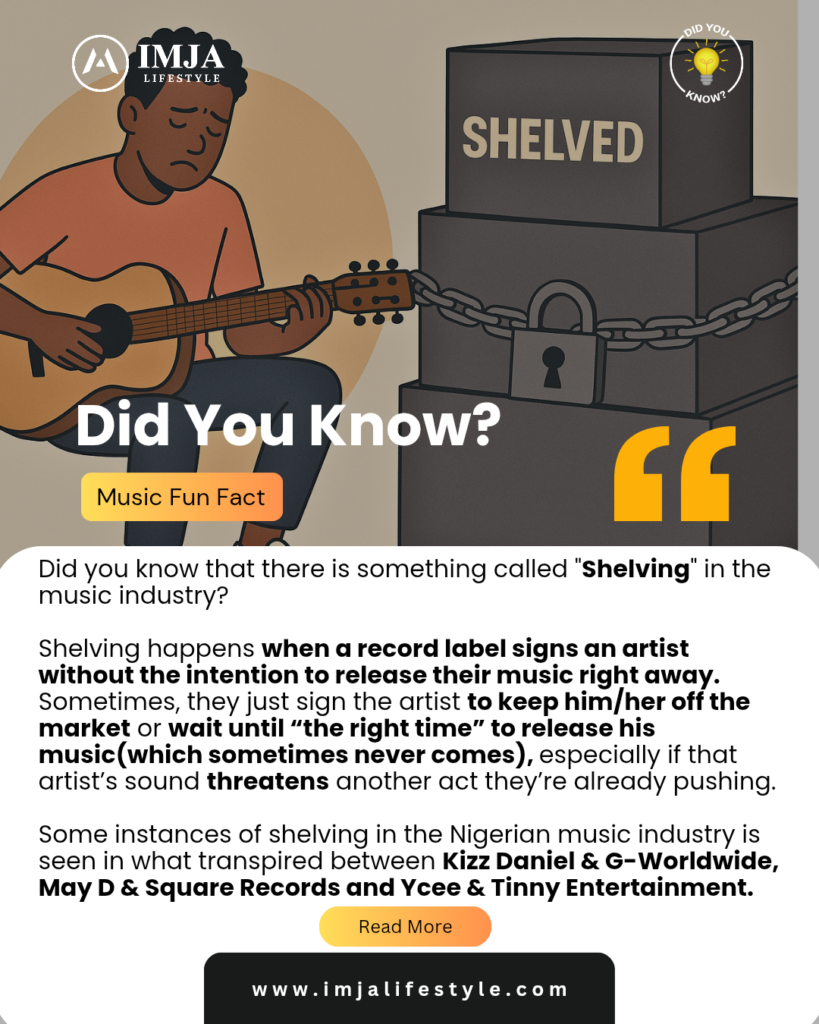
Labels sometimes sign artists just to shelve them, meaning they buy the rights to their music and then never release it. The artist still belongs to the label (by contract), but their music never sees daylight.
But why?
It’s business, nothing personal. Labels just do it to:
• Eliminate competition between similar artists.
• Keep control of trends.
• Or wait until “the right time” (which sometimes never comes).
It sounds harsh, but it’s actually true. Some artists’ entire careers have been paused because their music got trapped in a label shelf.
Some instances of shelving in the Nigerian music industry are listed below;
• Brymo & Chocolate City (2013) – After a fallout, Brymo claimed he was unable to release new music because of his contract. His album Merchant, Dealers & Slaves faced roadblocks until legal intervention.
• Kizz Daniel & G-Worldwide – Kizz’s early success with Woju and Laye was shadowed by a strict contract that limited collaborations and releases. When he tried to evolve, the label reportedly refused to clear new material, effectively freezing his output until he left and rebranded as “Kizz Daniel.”
• May D & Square Records – May D was signed under P-Square’s label but barely released music before being dropped. He later revealed he had songs ready that were never put out.
• Ycee & Tinny Entertainment – Ycee accused his former label of withholding royalties and control over his music after he left, hinting at how labels can slow an artist’s momentum post-signing.
This is why most new artists nowadays (and even big names) now move independent, or use distribution deals instead of full label contracts as it gives them creative control over their art and ensures no one can lock up their art.
